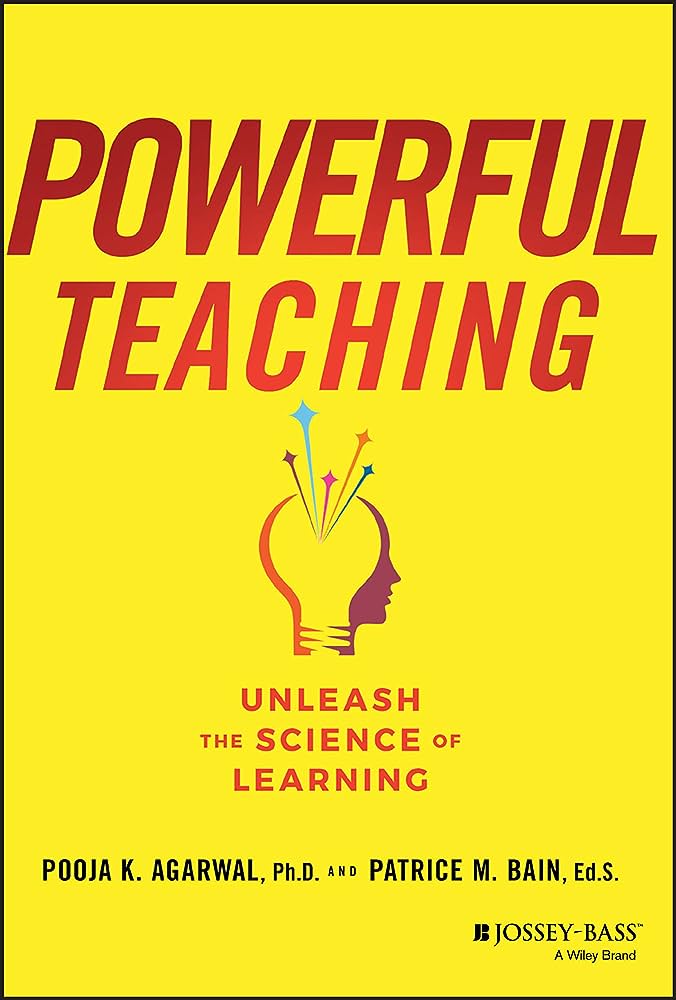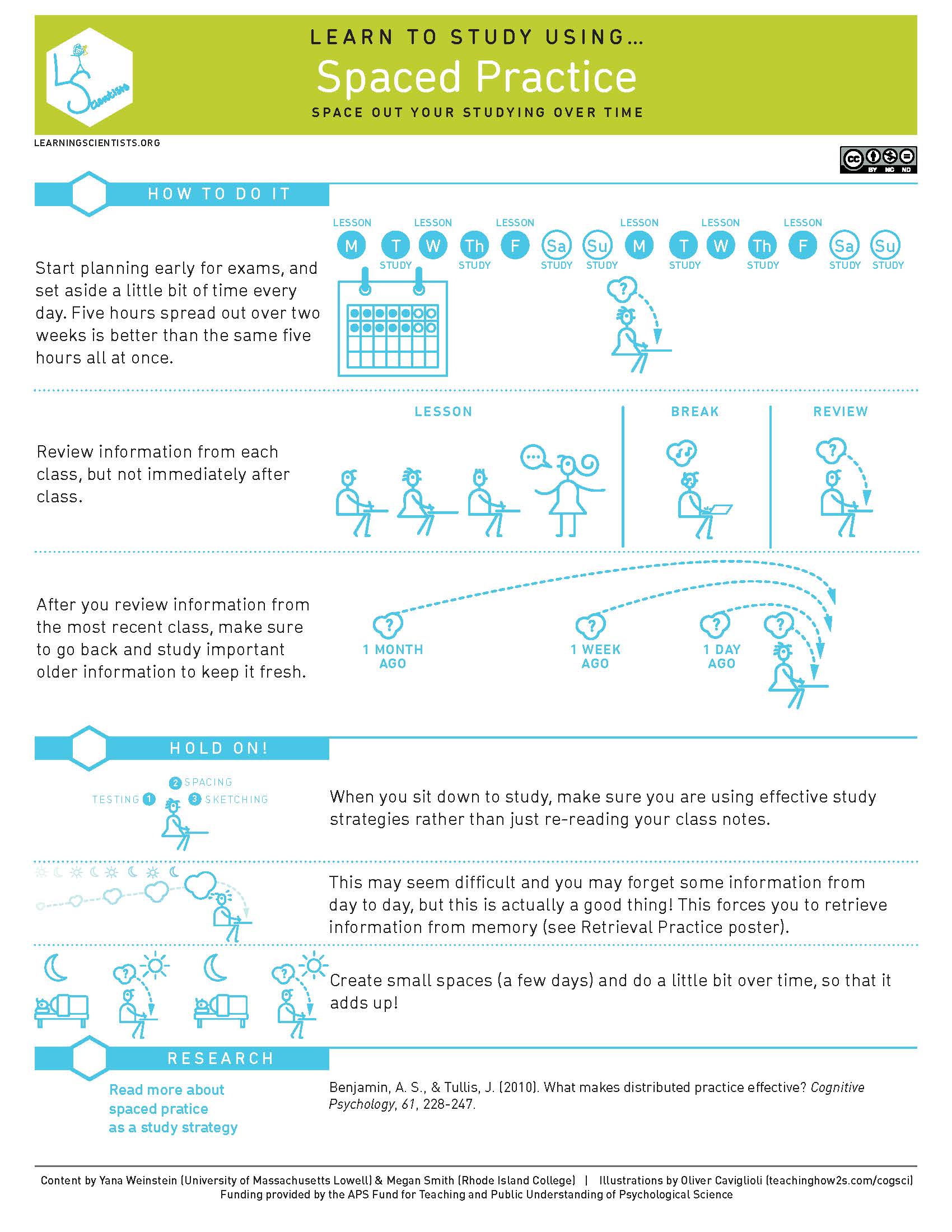Distributed practice is a learning technique that involves spreading study sessions over time instead of cramming them into a short period. By allowing time between practice sessions, learners can consolidate and strengthen their memories, resulting in more effective long-term retention of knowledge and skills.
Distributed Practice
Distributed Practice reviews material over increasing time intervals to solidify learning in long-term memory. Using flashcards is an example of Retrieval Practice.
Table of Contents
When to use
- Enhance long-term retention by spreading out practice sessions over time.
Pattern Requirements
- A study plan that incorporates time intervals between practice sessions.
- At the end of a section, suggest steps (tasks and timeframes) for students to take for study techniques.
- Formative assessment intentionally includes items from previous lessons (example in lesson 3, weave in concepts from lessons 1 and 2). Can tag information for students to see that this is testing recall. Two separate blocks – 1 for new information from lesson and 1 for information from previous lessons.
- If students do not get recall questions correct, add link back to placement in course content AND can provide link for additional content for learning (video, article, etc.).
- Implied timeframe by integration into course within suggested timeframe and placement in course.
Pattern Structure
Chunk content
Split information into smaller sections or topics, such as facts, vocabulary, or concepts.Begin with the first section
Understand it well using study aids like flashcards or summaries.Review at longer intervals
Gradually increase the time between reviews, e.g., one day, three days, a week. (Possibly not specific time periods, but by suggested time periods or by intentionally by placement in course)Apply active recall
Answer questions or solve problems without looking up information to strengthen memory.Evaluate progress
Regularly test yourself to determine if adjustments are needed in intervals or focus. (Can be done through formative assessments as recall in later lessons.)Introduce new material
Add new sections to the spaced repetition schedule to balance old and new information.
Additional Resources

This book emphasizes the importance of retrieval practice, spaced practice, interleaving, feedback-driven metacognition, and elaboration in promoting deep and lasting learning.

